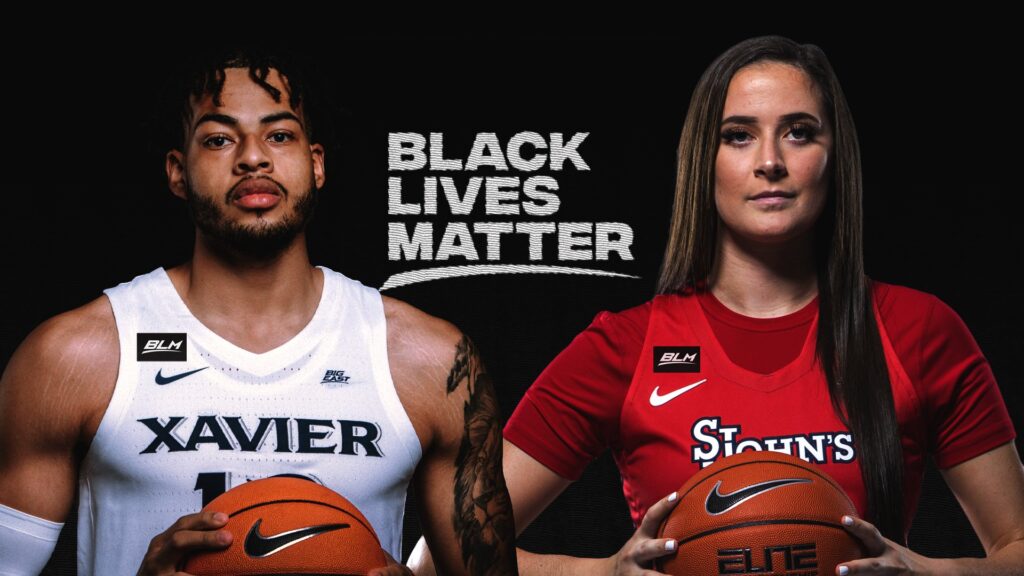Dear Beamers,
Greetings!
We can all agree that sports transcend mere games or entertainment; they also serve as a medium for social expression, communication, and interaction. Sports both mirror and shape societal cultures and they possess the power to contest and transform these elements. Moreover, sports offer a valuable platform for dialogue, education, and advocacy on a range of significant social issues including human rights, health, environmental sustainability, peace, and justice. In alignment with our commitment to delivering reliable and current information across a diverse array of subjects, this week’s newsletter will focus on “The Power of Athletics for Social Change in Nigeria.”
How can sports catalyze positive social change? This question is frequently considered by various stakeholders within the sports community particularly during periods of crisis or injustice.
Sports possess the capability to effectuate positive social change through various methods, contingent upon the objectives and strategies of the activities involved. Sports can promote personal and social development by enhancing self-esteem and resilience. They can also improve physical and mental health, contributing to better fitness and stress alleviation. Notably, sporting activities can foster social inclusion and integration, effectively challenging stereotypes and diminishing prejudices. Ultimately, sports can empower social action and participation by raising awareness and influencing policy decisions.
“Sports are a powerful tool for bringing people together. Sports make folks from different walks of life to play on the same team or cheer from the same stands, sports break down barriers and foster a real sense of community. These shared experiences and connections help challenge stereotypes and fight discrimination, creating a space where everyone can feel accepted and diversity is not just tolerated, but truly celebrated.” Says Abolaji Ogabi
Sports present numerous opportunities to effect positive social change by leveraging their popularity and appeal to engage a large and diverse audience. This potential is further enhanced by harnessing the skills and expertise of sports professionals, fostering collaborations across various sectors and disciplines, and adapting initiatives to different contexts to design customized sporting activities. Employing these strategies facilitates the creation and execution of impactful sports programs that directly address targeted social issues or objectives.
Globally, many athletes have risen to prominence and amassed considerable wealth through their participation in sports. They also achieve accolades and numerous awards, both for themselves and for their country. The list of distinguished sportsmen and women who have brought honor to Nigeria with their innate talent is extensive. If one factor has significantly contributed to Nigeria’s joy and global prominence, it is undoubtedly the exceptional performances of these athletes.
Nigeria has produced several prominent figures in athletics who have not only represented the nation from past to present but have also achieved global recognition, making their names synonymous with excellence worldwide. These athletes include Emmanuel Okala, Olusoji Fasuba, Stephen Keshi, Austin Okocha, Asisat Oshoala, Hogan Bassey, Mary Onyali, Blessing Okagbare, Nwankwo Kanu, Falilat Ogunkoya, Olumide Oyedeji, Bose Kaffo, Segun Toriola, Rashidi Yekini, Daniel Amokachi, Tijani Babangida, Segun Odegbami, Mikel Obi, Ese Brume, Blessing Oborududu, Nduka Ugbade, and many others.

The significant potential of sport to achieve developmental goals, particularly among Nigerian youth, has often been largely overlooked. Sport is a potent force that promotes universal participation, bridging national, ethnic, social, and religious divides. It is for this reason that when effectively utilized as a tool for youth development, sport can act as a catalyst for broader social progress.
According to Kehinde Fawaz, coach of a local football team in Nigeria,
“Sports are a game-changer for kids of all ages. They’re not just about playing; they teach critical life skills and give kids a sense of belonging. Sports can transform the lives of marginalized kids, including street children and those with disabilities, helping them fit back into society. When kids play sports, they learn to stick it out, work as a team, lead, and follow—all of which build confidence and motivation. Getting involved in sports early helps kids find out what they’re good at, whether it’s physical skills or something else, and can even point them toward a future career. Plus, sports connect kids with different communities, whether it’s at school, their place of worship, or a local club, helping them integrate and feel part of something bigger.”
The empowerment of women through sports represents a significant avenue for advancing sustainable development. In recent years, there has been a noticeable increase in the visibility and recognition of women in sports, which has challenged traditional gender norms. Female athletes act as formidable role models, dismantling stereotypes and motivating others to follow their passions without the constraints of gender.
Furthermore, the youth are among the most impressionable members of society, making sports an excellent vehicle for character development through the principles and values instilled by effective and structured sports programs. It is crucial to encourage active participation in sports from an early age, as the lessons derived from such engagement are not only profoundly positive but also character-defining and transformative.
Sports instill essential life skills, including leadership, teamwork, and discipline. Organized sports programs frequently incorporate educational elements that cover topics such as health and nutrition, promoting a comprehensive developmental approach. Through participation in sports, young individuals not only improve their physical health but also gain critical knowledge and skills that positively influence their academic achievements and overall personal development.
Participation in sporting activities play a crucial role in advancing development and peace by actively promoting values such as tolerance and respect. The inclusive nature of sports enables individuals from diverse backgrounds to unite in competition and collaboration. In team sports, athletes learn the significance of cooperation, mutual understanding, and respect for the skills and contributions of teammates, regardless of their cultural or ethnic backgrounds. These experiences gained on the field often carry over into real-world scenarios, fostering a more harmonious and tolerant society.

There are several unique challenges inherent in utilizing sports to foster positive social change. External influences such as politics, media, economics, and religion can impact sports, potentially distorting its message or effectiveness. Sports can be misused or exploited by individuals or groups who manipulate them to serve personal interests or agendas. Furthermore, sports can lead to negative or unintended consequences, including discrimination or exclusion, which may harm or offend certain groups or individuals. Practical and ethical dilemmas, such as resource allocation, accountability, and sustainability, may also arise, potentially compromising the quality and effectiveness of sports programs.
At the professional level, sport still confronts many challenges that hinder its full potential. A significant issue is the persistent corruption within sports organizations and governing bodies, which undermines the integrity of competitions and tarnishes the principles of fair play and sportsmanship. Many athletes, especially those from underprivileged backgrounds, face inadequate access to proper training facilities, coaching, and financial support. This imbalance impedes talent development and perpetuates disparities in the representation of different demographics across various sports.
Additionally, the commercialization of sports has sparked concerns about the prioritization of profit over the well-being of athletes. In Nigeria, athletes often face intense pressure to perform at the highest levels, which can lead to both physical and mental health challenges. Practices such as doping, match-fixing, and the excessive pressure to excel at any cost diminish the true spirit of competition. While commercialization has enhanced the national and global appeal of sports, it has also raised alarms about the prioritization of financial gains over the welfare of athletes. The focus on securing lucrative broadcasting deals and endorsements can sometimes eclipse the importance of promoting athlete welfare and ensuring long-term sustainability.
Despite the various challenges faced by sports at both local and international levels, their importance and value cannot be overshadowed. One such value is the promotion of overall wellness through active participation. Sports play a significant role in achieving health objectives by fostering an active lifestyle. Regular physical activity, encouraged through sports participation, is linked with enhanced cardiovascular health, lower obesity rates, and improved mental well-being. Sports act as an effective tool in combating sedentary lifestyles globally, aiding in the prevention of numerous health issues and promoting overall wellness.
Senami Otun, a Physical Education instructor, asserts that participating in youth sports offers several mental, physical, and psychological benefits. In her words:
“Sports aren’t just about getting physically fit—they sharpen your mind too. When you’re in the game, you’re boosting skills like focus, critical thinking, and creativity. Physically, staying active through sports can mean a healthier life and even dodging some serious health problems down the line. Plus, regularly hitting the field or court can seriously boost your confidence and self-esteem. It teaches you to set goals and chase them, and that feels good. And on the flip side, staying active can help keep the blues, anxiety, and even insomnia in check.”
Many of the detrimental behaviors and lifestyles affecting our youth can be mitigated through their active participation in sports programs. Sports serve as a valuable tool for instilling essential social skills in the youth of our diverse society, such as ethnic and religious understanding, tolerance, a work-based rewards mentality, and the significance of contributing back to the community as role models and youth ambassadors.
It is no longer acceptable for parents or communities to claim they are too busy to facilitate and monitor a credible, regular, and safe sports program for their children and wards. In the absence of structured programs in your area, it is feasible to collaborate with other like-minded parents to develop a program that could serve as a model for other neighborhoods. This initiative could extend to community leadership, including local government and religious authorities, to further support and enhance these efforts.
National and State sports commissions are urged to establish additional recreational spaces for public use. Campaigns that encourage sports engagement should be initiated in neighborhoods and schools to raise awareness among the community and authorities. Also, schools at primary, secondary, and tertiary levels should develop and implement a structured and concise sports curriculum to promote consistent physical activity and athletic participation.

Sport has the capacity to transform the world, possessing a unique ability to unite people in ways few other activities can. Sports captivate hearts, break down barriers, and impart lessons that resonate well beyond the playing field. In a nation that values diversity, sports act as a universal language that transcends cultural, linguistic, and socio-economic boundaries. This unifying power not only brings communities together but also empowers individuals, making it a pivotal force in driving positive global change.
Sport serves as a powerful tool for forging connections. The enthusiasm that people feel for sports creates a strong sense of identity and allegiance towards their favorite teams. This shared affinity fosters a sense of kinship among fans who support the same team, making sports a strategic avenue for nation-building. When citizens of a country share a common enthusiasm for a particular sport or team, this collective passion can enhance national unity, giving individuals a sense of belonging to the same community.
In conclusion, sport plays a crucial role in elevating the socio-economic status of individuals. The cultivation of sporting talent within a nation can significantly enhance its international reputation through the achievement of accolades in continental and global sporting events. For individual athletes, involvement in sports can be transformative, offering a pathway from poverty to prosperity, and from anonymity to fame, thus contributing to social mobility and transformation.




